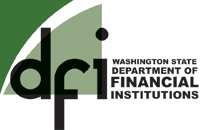From the Field - Common Examination Findings

The following are some of the common violations our exam teams in each industry found during examinations in the last quarter:
- MSB Programs
- Mortgage Originations – Mortgage Broker
- Mortgage Originations – Consumer Loan
- Mortgage Servicing
- Escrow Agent
MSB Programs
MT Annual Assessment Report – The filing period is approaching! Every money transmitter and currency exchange licensee must submit a completed annual report and annual assessment fee by July 1, as required under WAC 208-690-090. The annual assessment is based on the previous year’s Washington dollar volume of money transmission, payment instruments, currency exchanges, and prepaid access sales.
Permissible Investment and Transmission Liability Reporting and Coverage - Licensees must prepare and maintain monthly PI reports in order to demonstrate adequate PI as required under RCW 19.230.200 and RCW 19.230.210. Note, the Department provides model PI and ADTL forms for licensees’ use on the agency’s website.
Disclosures – Disclosures required by WAC 208-690-205 must be provided as required. Fraud disclosures should be provided prior to each transaction and include language similar to that included in WAC 208-690-205(2). Specific disclosures are required by virtual currency licensees under WAC 208-690-205(3) and must be disclosed separately from all other information required.
Mortgage Originations – Mortgage Broker
The most common violations during Q1 2021 are generally similar to previous quarters and include:
- Failure to file quarterly Mortgage Call Reports (MCRs) on time
- Failure to file accurate MCRs
- Failure to develop and implement an adequate Anti-Money Laundering program
- Advertising using the phrases “best” and “lowest” to describe rates, fees, or programs
- Advertising “No Closing Costs” or something for “Free”
- Failure to provide updated lock agreements when a change to the lock terms occurs
- Failure to include a link to the company’s NMLS consumer access web site on all internet advertisements. The requirement to include the link on all internet advertisements was new as of September 2019.
The Department recently posted an AML Program Outline to its website. The guidance brings together information from FinCEN’s anti-money laundering regulations and provides a template brokers may use to develop a compliant AML program.
Mortgage Originations – Consumer Loans
Surety Bonds – The amount of the surety bond licensees are required to hold is based on the volume of activity from the prior year. Licensees must review and update surety bond amounts based on previous year volume. On recent examinations, examiners have identified licensees that have failed to update surety bond amounts as required. WAC 208-620-320.
Residential Mortgage Loan Applications – Examiners continue to find residential mortgage loan applications that are not dated. The Act requires licensees to indicate the date the application was taken or revised. The Department recommends that licensees utilize their loan origination software to date applications when initially generated and revised. WAC 208-620-550(18).
Mortgage Loan Servicing
Overall, compliance from residential mortgage loan servicers remains acceptable, with the majority of examinations rated “2.” The most common finding from examinations in the last quarter is filing inaccurate annual assessments. The amounts by which filings are inaccurate is declining. The Department hopes to see more accuracy as examiners begin to look at company annual reports that came due this past March 1. The other common finding for the quarter is not suppressing adverse credit reporting for CARES Act forbearances. The scope of the last quarter’s examinations includes time before the CARES Act; most of the mistakes were made in the initial months of forbearance.
Escrow Agent
During the last quarter, the Department cited three escrow agents for overdrawn escrow accounts. One escrow agent was also cited for failing to timely resolve overdrawn accounts. Additionally, inaccurate Closing Disclosures is an ongoing issue. The causes and solutions vary based on a several factors including, but not limited to, in state vs. out-of-state escrow agents, and escrow or lender closing software.
